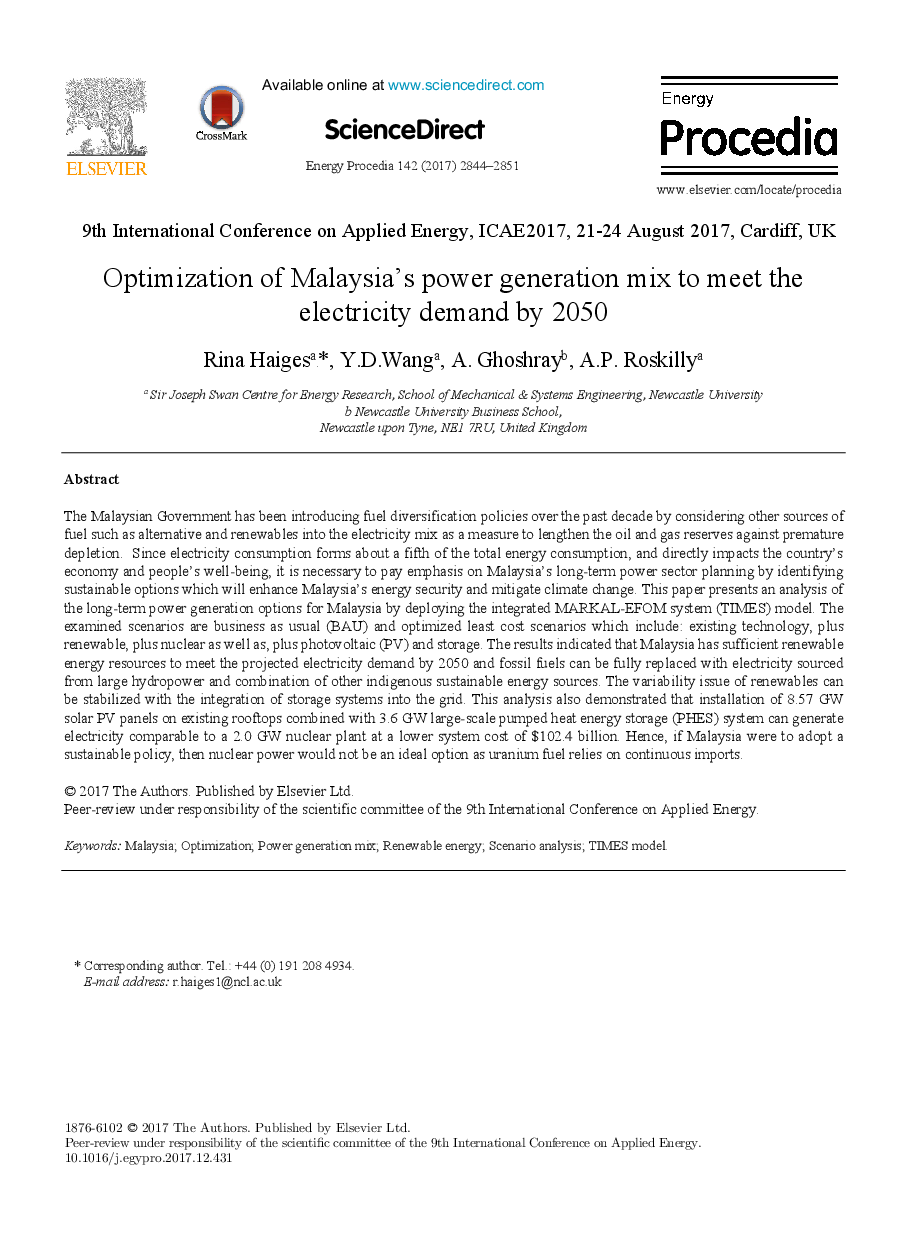ترجمه فارسی عنوان مقاله
بهینه سازی مخلوط تولید برق مالزی برای پاسخگویی به تقاضای برق تا سال 2050
عنوان انگلیسی
Optimization of Malaysias power generation mix to meet the electricity demand by 2050
| کد مقاله | سال انتشار | تعداد صفحات مقاله انگلیسی |
|---|---|---|
| 134650 | 2017 | 8 صفحه PDF |
منبع

Publisher : Elsevier - Science Direct (الزویر - ساینس دایرکت)
Journal : Energy Procedia, Volume 142, December 2017, Pages 2844-2851

